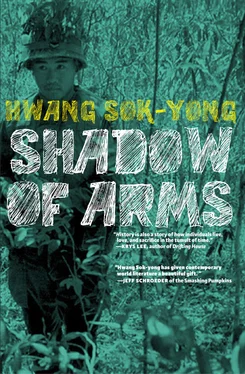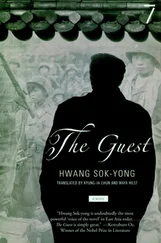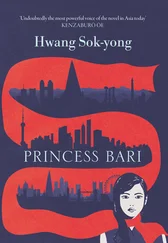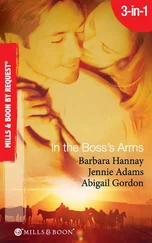“Now I understand, sir.”
“Cell A of the reinforcement company is most efficient, so I’m planning to entrust the elimination of Cao to them. Cell B will be assigned to assist cell A, and cell C can take care of the Grand Hotel mission. I’ll be furnishing cell C with time-delay detonators and disassembled mines. First, tell them to put together their basic plans this week and then report on that to a higher authority. After their plans are reviewed and accepted, they can execute them. Cell B should conduct investigations into Cao’s house, his relatives and friends, his daily routine and patterns of movement, the strength and characteristics of his bodyguards, the places he most often frequents, and so on. Based on that information, cell A will select the most opportune time and location for the attack, then conduct a field survey and a dry run before eliminating Cao. What’s the contact hour?”
“About the time the office closes.”
“You now have a complete understanding of the orders for operations and the duties of each cell, right?”
Pham Minh nodded. Thach was about to leave the office when he paused and asked, “Did you see the girl?”
“Yes, just for a short time.”
“So, what’s to be done about it?”
“Seems her family is pressing her to enter into an engagement. I told her to do as she pleased.”
“Was that truly necessary? In my opinion, your judgment wasn’t very good. The same thing once happened to me. And forget about what Comrade Thanh said.”
“The truth is, I lacked confidence, sir.”
Lifting his gloomy face up toward the ceiling of the warehouse, Thach was lost in thought about something, and then murmured, as if to himself, “Now that I think of it, the road to love and the road to revolution are one and the same.”
Footnote:
10 From the poem “Rappelle-toi Barbara” by Jacques Prévert
Investigation Report on Atrocities by G2 and MID11
The present case arose from charges submitted at the military prison facility. An officer and a sergeant were interrogated in connection with allegations of torture. The accused were sentenced to reduction in rank and disciplinary punishment. No public announcement of the findings has been made. The informants have been released and have returned to duty assignments. Transcript of interrogation follows:
Informants: Marvin Cole, Private (Age 22, born Pennsylvania)
Von Taylor, Private (Age 21, born Ohio)
Howard Brown, Private (Age 23, born Nebraska)
Defendants: Lieutenant Sloat (Regimental intelligence officer, born California)
Master Sergeant McCoy (Division MID)
Witness: Master Sergeant Nguyen (ARVN interpreter)
Interrogator: State your prisoner numbers, your rank prior to confinement, and the charges of which you were convicted.
Cole: Number 2-40-1. Rank lieutenant, charged with homicide by misfire.
Taylor: Number 2-40. Private. Assault on a superior.
Brown: Number 2-40-2. Master sergeant. Dereliction of duty.
Interrogator: Before we begin the questioning on this incident, state the circumstances up to the point at which Lieutenant Sloat summoned the informants.
Cole: I can tell you myself. Our day usually started with roll call at 0500. Everything followed the loudspeaker’s instructions. All you could see in the dark was the spotlight and the barbed wire. After finishing breakfast, we immediately started the morning work. Lunch is the only meal we have in the sunlight. The work assigned to us was loading sand. Other teams were assigned to breaking rocks, so we considered ourselves lucky.
Interrogator: Only state the facts relevant to the present case.
Cole: I was an officer. The reason I’m mentioning prison conditions is, though it’s not included in the charge, I think these are things that absolutely must be known outside of the prison.
Interrogator: Fine. Go on.
Cole: Escape from the prison is almost unthinkable. In front is the sea, and looking over the stretches of sand is a watchtower equipped with machine guns. Beyond is the jungle. At ebb tide you can swim out about ten miles from shore, but the tide comes in so fast that many who have tried to escape were found drowned. The jungle starts about five or ten miles away.
Taylor: Some prisoners cut their way through the wire fence, planning to head for Cambodia, but they were soon captured by pursuit patrols. Or shot by the enemy.
Brown: I escaped once. Whenever I got the chance I widened a hole in the bottom of the fence a bit at a time. At night I dug out the sand and crawled out under the wire. I got to the edge of the jungle, but I didn’t have the courage to go in, so I came back. I was given solitary соnfinement.
Cole: Even so, there’s always some prisoner trying to run away. Some head into the sea, hoping to reach Japan, and are never seen again. The attempts were constant because in that prison the work is harsh, the food is miserable, and you can trust neither the friendly captors nor the enemy.
Brown: The guards would say we could rest after finishing our work, but from my experience I’d say it was better to slow down and keep working. For it became clear that as soon as we finished one thing, they’d load more work on us.
Taylor: We decided Howard was right, so we used to load the sand bags slowly and take our time carrying them. We loaded almost a full truck, but we still weren’t too tired. A new prisoner, who wasn’t used to the sun, kept collapsing. We had to fill his quota, too. At 1000 we had a five-minute break. They gave us a cup of water dipped from a rusty drum.
Cole: As we stood there drinking, gasping like dogs, we heard Brown say there was a new addition to the family. An army Jeep was approaching, raising plumes of dust. That was when he arrived. The guard shouted at us to get back to work and stop gawking, but we were so fed up with the monotony of the work we just stood there and watched. In the Jeep was a young Vietnamese boy, his hands tied behind his back, wedged between two American soldiers. The boy was in black pajamas, and was very thin with a long neck. The guards roughly dragged him down from the Jeep.
Taylor: I was stunned. I had never seen a little boy tied up like that before, and I couldn’t stop staring. The guard whacked me on the back of my head with his baton.
Brown: It was during the lunch break that Marvin and I were summoned. They called it lunch hour, but roll call took about twenty minutes, so there was only about ten minutes left to wait in the scalding heat and then gulp down that slop. The loudspeaker was blaring that vaccinations were to be given. Then Marvin’s name and number were called over the speaker. They repeated it several times, and then started swearing.
Cole: I was dozing off. The guard walked down my file, looked around and then dragged Howard and me out. After checking our numbers, he led both of us to the main gate in the wire-mesh fence. There we were handed over to the guard, who took us to one of the Quonsets outside the fence.
Interrogator: Private Taylor, you didn’t go with them, so how is it you became an informant about the misconduct?
Taylor: I was summoned later, at the very end.
Interrogator: Are you the one who disposed of the corpse?
Taylor: Yes, that’s right. The dead body was—
Interrogator: Ah, you can testify on that later.
Cole: It was dark inside the Quonset. All the blinds were drawn. There was a lamp on the desk, but it was dim. I guess the lieutenant had turned the dimmer down. The walls shook from the air-conditioner unit in the window.
Interrogator: How many people were inside, and who were they?
Cole: Lieutenant Sloat, Master Sergeant McCoy, the Vietnamese interpreter, and the little boy.
Читать дальше












